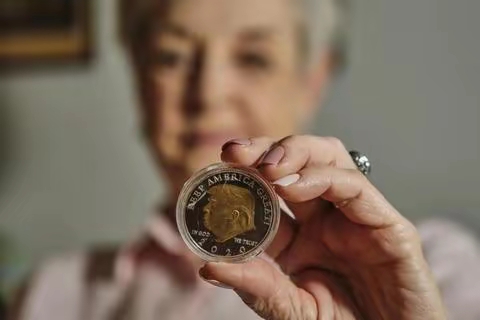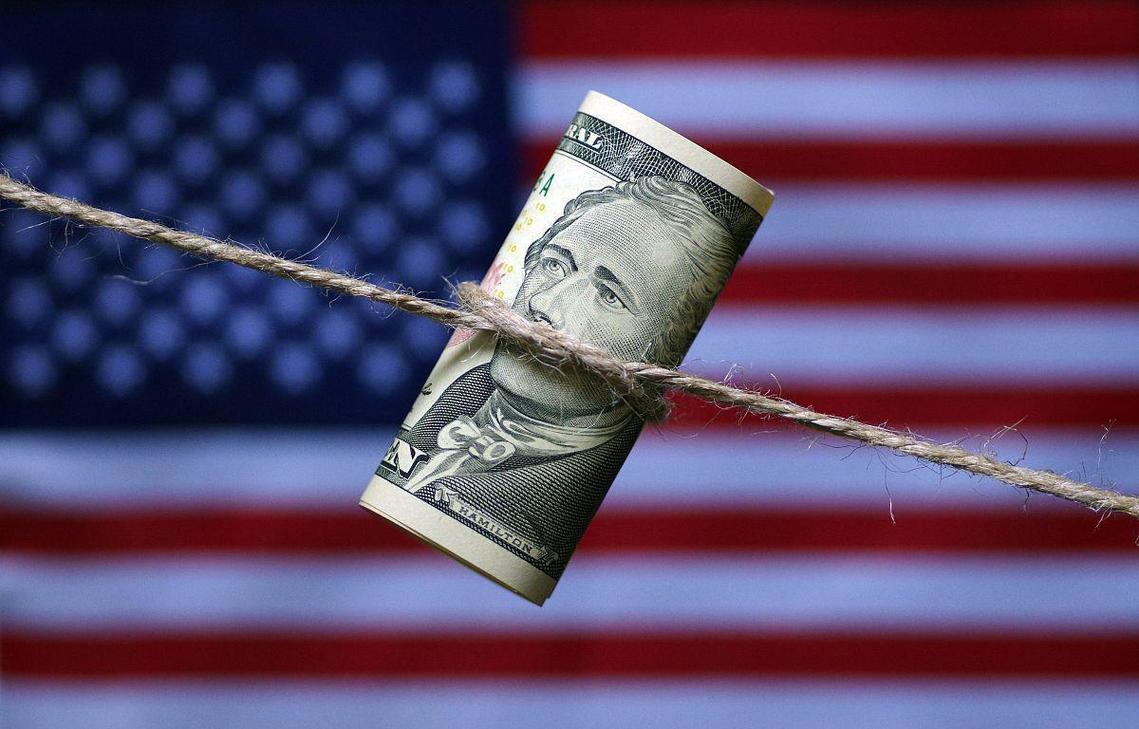
Recently, the issuance of the personal virtual currency TRUMP by US President elect Trump has attracted widespread attention and discussion worldwide. This incident not only caused a huge stir in the field of cryptocurrency, but also triggered people's in-depth thinking on various issues such as politics, economy, and finance.
Trump has always presented himself as a business tycoon, with involvement in various fields such as real estate and entertainment. The issuance of virtual currency this time is undoubtedly another means for him to use his influence and brand value for commercial monetization. According to reports, 80% of the supply of TRUMP coins is jointly held by CIC Digital, a company under Trump, and an entity called 'Fight Fight Fight'. This means that the Trump family may potentially gain huge economic benefits from it. This behavior has sparked numerous criticisms and has been accused of financializing the presidency and profiting from it. In the past, US presidents often tried to distance themselves from personal financial affairs before taking office to avoid conflicts of interest, but Trump's approach clearly breaks this tradition.
Meme coins themselves often lack actual economic or trading value, relying mainly on market sentiment and social media hype to drive price increases. The launch of TRUMP coin is a typical example. After Trump announced the launch of the virtual currency, its price soared sharply in a short period of time, with a daily trading volume increase of 1200% and a market value of $7.5 billion. This skyrocketing market has attracted the attention and participation of a large number of investors, including some speculators who blindly follow the trend. However, this market behavior based on speculation and speculation often carries significant uncertainty and risk. The price of Meme coin fluctuates extremely violently, and once market sentiment changes, the price may quickly plummet, causing investors to suffer huge losses.
At present, there are still many gaps and imperfections in the global regulation of cryptocurrencies. Trump's issuance of virtual currency reflects to some extent the lack and inadequacy of regulation in the cryptocurrency industry. On the one hand, the lack of clear legal and regulatory constraints on the issuance and trading of virtual currencies has led to some individuals exploiting regulatory loopholes for illegal activities; On the other hand, the transparency of information in the virtual currency market is low, making it difficult for investors to obtain accurate and comprehensive information, which can lead to misleading and fraudulent activities. This lack of regulation not only poses risks to investors, but also poses a threat to financial stability and social security.
The event of Trump issuing virtual currency reveals the complex relationship between politics and economy. In modern society, the words, actions, and decisions of politicians often have a profound impact on the economy. As the elected president of the United States, Trump's actions in the cryptocurrency field have sparked strong market reactions, and the prices of other cryptocurrencies such as Bitcoin have also been affected. This indicates that politicians can drive economic activity by influencing market expectations and investor sentiment. However, the close integration of politics and economy can also easily lead to issues of interest transfer and corruption. Trump's issuance of virtual currency has been criticized as using political power to seek economic benefits for individuals and families, which not only harms public interests but also undermines political fairness and integrity.
The event of Trump issuing virtual currency has also sparked people's thinking about the future development of virtual currency. Virtual currency, as an emerging financial technology, has the characteristics of decentralization, anonymity, and convenience, and is considered to have great potential for development. However, the chaos and risks in the virtual currency market cannot be ignored. How to promote the innovative development of virtual currencies while strengthening their regulation, protecting the interests of investors, and maintaining financial stability is an urgent problem to be solved. In the future, the development of virtual currency requires joint efforts from governments, regulatory agencies, industry organizations, and investors to establish a sound legal and regulatory system, strengthen market self-discipline and investor education, and promote the healthy and orderly development of the virtual currency market.
The event of Trump issuing virtual currency is not just a simple business activity, but also a complex phenomenon involving multiple fields such as politics, economy, and finance. It reveals many issues such as personal commercial interests, market speculation, regulatory deficiencies, the relationship between politics and economy, and the future development of virtual currencies. We need to learn from this incident, strengthen regulation of the cryptocurrency market, regulate the behavior of politicians, and safeguard the interests of investors and the stability of the financial market.

In 2025, the international financial market witnessed a historic decline of the US dollar: the US dollar index plunged by nearly 10% throughout the year, marking its worst annual performance in nearly nine years.
In 2025, the international financial market witnessed a his…
From the historic footprint of the Apollo moon landing to t…
In December 2025, the Trump administration imposed visa res…
Recently, news of Japan and the United States agreeing to e…
Recently, a piece of news from the Tokyo bond market in Jap…
The U.S. economy in December 2025 resembles a meticulously …